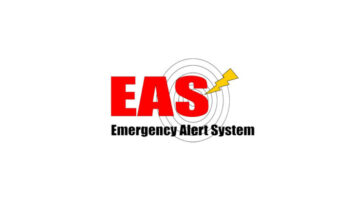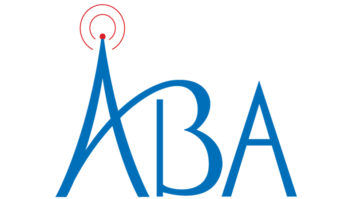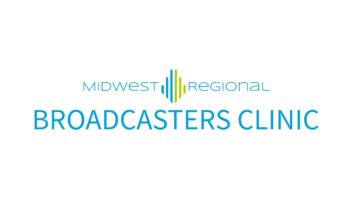With radio broadcasters hyper-focused on cost-cutting, some are consolidating or outsourcing their traffic and billing functions.
(In this article, traffic refers to processes that manage the lifecycle of an ad spot that plays on the radio. These inventory management systems, according to service provider Marketron, coordinate airtime programming and ad spots, involving steps like order entry, approvals, log preparation, billing, reconciliation, proof of performance and reporting.)
Radio’s traffic management landscape is changing quickly as broadcasters look at ways to optimize automated workflows within this ecosystem.
Broadcast ownership groups generally have been tight-lipped about these decisions. Officials at iHeartMedia and Audacy, the two largest U.S. radio groups by revenue, declined to be interviewed for this story, but both reportedly have eliminated positions and condensed many business operations.
[Related: “Trends in Traffic Management for Radio”]
At a minimum, iHeart has substantially consolidated its traffic and billing operations by moving most functions from individual stations to centralized “Centers of Excellence.”
According to reporting by music trade publication Radio and Music Pros, iHeart’s traffic managers and continuity staffers were among those hit by a round of layoffs early last year.
According to one person familiar with iHeart operations, its “programmatic buying and other automated workflows likely mean there is less of a need for a lot of traffic people.”
Another top-five radio company is Beasley. In a redesign of its digital workflow, the company in 2024 brought on a third-party accounts receivable service to handle some “payment applications.” But according to a spokesperson, Beasley otherwise continues its market accounts receivable functions.
But at No. 3 Cumulus, CEO Mary Berner disclosed on a quarterly investor call in August that it was outsourcing its entire traffic function.
“That will result in several million dollars of cost savings, which will be realized in 2026,” she said. A Cumulus spokesperson told Radio World in an email that the company had nothing further to share on the topic.
But Cumulus stations began transitioning its commercial logs to Wipro, a third-party vendor, in September, according to a person familiar with these changes.
Wipro is based in India and provides clients a suite of media and entertainment services that includes components for content and advertising management.
In August, the Georgia Association of Broadcasters wrote in a newsletter that Cumulus had laid off 60 or more members of its corporate traffic department in this outsourcing, attributing the information to the podcast Georgia Wavelengths.
Most Cumulus traffic staff had been working remotely, handling up to a half dozen stations each, according to that report.
“The new company, which reportedly is the same Indian company that iHeart uses for traffic functions, is set to begin training on Cumulus stations,” the GAB wrote.
A shrinking talent pool
One observer who asked not to be named said the tedious days of manual logs, reconciliation, auditing and invoicing are almost over, thanks to increasingly sophisticated scheduling software, automation, integration between systems and the growth of AI tools.
“All are repeatable tasks that can be automated very well,” he said.
Marketron supplies traffic management technology to radio stations. It says larger broadcasters are creating hubs to manage traffic operations from a central zone, or outsourcing these operations entirely. It says smaller broadcasters are sometimes faced with more challenging decisions.
Todd Kalman, chief revenue officer at Marketron, says broadcasters are choosing between several options.
“They can outsource traffic management to partners like Marketron, where our team becomes an extension of the station to handle daily workflows with consistency and accuracy. Alternatively, stations that choose to keep the function in-house must ensure their traffic system is optimized for automation, integration and streamlined workflows.”
Kalman says cost savings is often a driver of outsourcing. He said the true value of outsourcing lies in operational excellence and resource optimization.
“By partnering with experts, stations free up internal bandwidth and ensure these mission-critical functions are handled with consistency and precision,” Kalman says.
Not all outsourcing is created equal, he believes.
“Some providers rely heavily on contractors or fragmented networks of freelancers to manage traffic and billing. This approach can pose serious risks when handling confidential revenue and client information. Without direct oversight, stations may face issues with data security, accountability and accuracy,” he said.
Marketron says another factor affecting broadcasters is that the talent pool of traffic professionals is shrinking. Many seasoned experts are retiring while fewer younger professionals enter the field.
Rhonda Austin, radio traffic/operations manager for WXXI Public Media in Rochester, N.Y., said the contributions of the traffic department are often overlooked even though traffic and billing are critical to the pursuit of profitability.
“It is definitely an undervalued department,” she said. “Why? Traffic staff have always been seen as an administrative position or department. Even though we work closely with the sales staff, in some cases we also work closely with production or produce spots ourselves.”
She acknowledges that public media differs from commercial radio, but she said the essence of the job remains the same. And when commercial broadcasters outsource traffic and billing, stations can lose their connection to local audiences and customers.
“As for billing, having a connection to someone in that city who knows their advertisers would be beneficial, especially in case of an issue,” Austin said.
She said the former Traffic Directors Guild of America was a good resource for gathering information about traffic professionals. It ceased operations following the death of founder Larry Keane in 2018.
Comment on this or any article. Email [email protected].







